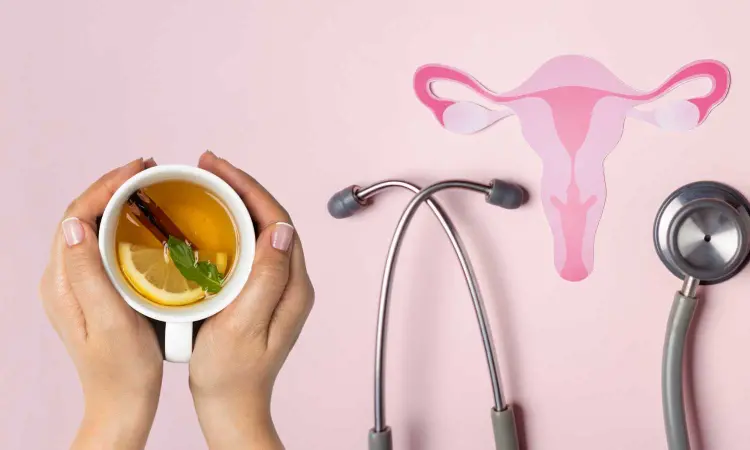- Home
- Medical news & Guidelines
- Anesthesiology
- Cardiology and CTVS
- Critical Care
- Dentistry
- Dermatology
- Diabetes and Endocrinology
- ENT
- Gastroenterology
- Medicine
- Nephrology
- Neurology
- Obstretics-Gynaecology
- Oncology
- Ophthalmology
- Orthopaedics
- Pediatrics-Neonatology
- Psychiatry
- Pulmonology
- Radiology
- Surgery
- Urology
- Laboratory Medicine
- Diet
- Nursing
- Paramedical
- Physiotherapy
- Health news
- Fact Check
- Bone Health Fact Check
- Brain Health Fact Check
- Cancer Related Fact Check
- Child Care Fact Check
- Dental and oral health fact check
- Diabetes and metabolic health fact check
- Diet and Nutrition Fact Check
- Eye and ENT Care Fact Check
- Fitness fact check
- Gut health fact check
- Heart health fact check
- Kidney health fact check
- Medical education fact check
- Men's health fact check
- Respiratory fact check
- Skin and hair care fact check
- Vaccine and Immunization fact check
- Women's health fact check
- AYUSH
- State News
- Andaman and Nicobar Islands
- Andhra Pradesh
- Arunachal Pradesh
- Assam
- Bihar
- Chandigarh
- Chattisgarh
- Dadra and Nagar Haveli
- Daman and Diu
- Delhi
- Goa
- Gujarat
- Haryana
- Himachal Pradesh
- Jammu & Kashmir
- Jharkhand
- Karnataka
- Kerala
- Ladakh
- Lakshadweep
- Madhya Pradesh
- Maharashtra
- Manipur
- Meghalaya
- Mizoram
- Nagaland
- Odisha
- Puducherry
- Punjab
- Rajasthan
- Sikkim
- Tamil Nadu
- Telangana
- Tripura
- Uttar Pradesh
- Uttrakhand
- West Bengal
- Medical Education
- Industry
Early Time Restricted eating more effective than midday Time Restricted for reducing weight and insulin resistance in PCOS patients: Study

MP Sets Up State’s First Gynaecology Centre
Researchers have established that early time-restricted eating (e-TRE) is better than mid-day time-restricted eating (m-TRE) for weight management and for improving insulin sensitivity in women with polycystic ovary syndrome (PCOS). PCOS is the most common endocrine and metabolic disorder affecting women of reproductive age worldwide and is implicated with an increased risk for metabolic syndrome, cardiovascular diseases, and type 2 diabetes. A recent study was conducted by Maryam A. and colleagues which was published in the Iranian Biomedical Journal.
With more and more interest in this specific type of intermittent fasting-the time-restricted eating-in improving weight loss, regulation of glucose, and lipids metabolism, there remain uncertainties as to whether or not such restriction should come early in the day and termed e-TRE (e-TRE) or come middle of the day and labeled as m-TRE (m-TRE). This clinical study, therefore, attempts a head to head comparison of e-TRE vs. m-TRE on selected metabolic parameters on women patients with PCOS.
A total of 50 overweight or obese women, aged 18-40 years, and diagnosed with PCOS using the modified Rotterdam criteria, were enrolled in this randomized clinical trial. The participants were randomly assigned to either the e-TRE group (8:00–18:00, n=25) or the m-TRE group (11:00–21:00, n=25). Both interventions lasted for 6 weeks.
Anthropometric measurements and metabolic markers assessed were body weight, waist circumference (WC), body mass index (BMI), fasting blood sugar (FBS), fasting insulin, homeostasis model assessment of insulin resistance (HOMA-IR), total cholesterol (TC), triglycerides (TG), high-density lipoprotein (HDL), and low-density lipoprotein (LDL). Independent and paired t-tests (and non-parametric equivalents) were applied to examine the differences.
Results
Anthropometric Parameters Improved Significantly
Both e-TRE and m-TRE groups presented significant reductions in body weight, WC, and BMI after 6 weeks (p = 0.0001).
Enhanced Glycemic Control
The FBS and HOMA-IR levels significantly decreased in both groups (p = 0.0001). However, e-TRE showed more significant reduction in the fasting insulin levels (p = 0.0001), which was not significant in the m-TRE group (p = 0.05).
Changes in Lipid Profile
e-TRE significantly improved TC and LDL levels (p = 0.0001), while the m-TRE group did not exhibit significant changes (p = 0.05). Changes in TG and HDL were not statistically significant in either group (p = 0.05).
Intergroup Comparisons
When comparing e-TRE and m-TRE, significant differences were found in weight, BMI, FBS, TC, LDL, fasting insulin, and HOMA-IR (p = 0.05), favoring e-TRE as the superior intervention.
Early TRE was significantly better than mid-day TRE to reduce body weight and insulin resistance in women with PCOS. These results highlight the potential of e-TRE as an easy and non-pharmacological intervention for improving metabolic disorders associated with PCOS. However, its efficacy on lipid profile and overall metabolic health has to be validated further with more randomized control trials.
Reference:
Aminian M, Hajshafiha M, Heidari M, Daneghian S. Effect of Two Types of Time-Restricted Eating on Glycemic, Lipid Indices and Weight of Women with Polycystic Ovary Syndrome. Iran Biomed J. 2024 Dec 1;28(7):2. PMID: 39645592.
Dr Riya Dave has completed dentistry from Gujarat University in 2022. She is a dentist and accomplished medical and scientific writer known for her commitment to bridging the gap between clinical expertise and accessible healthcare information. She has been actively involved in writing blogs related to health and wellness.
Dr Kamal Kant Kohli-MBBS, DTCD- a chest specialist with more than 30 years of practice and a flair for writing clinical articles, Dr Kamal Kant Kohli joined Medical Dialogues as a Chief Editor of Medical News. Besides writing articles, as an editor, he proofreads and verifies all the medical content published on Medical Dialogues including those coming from journals, studies,medical conferences,guidelines etc. Email: drkohli@medicaldialogues.in. Contact no. 011-43720751


